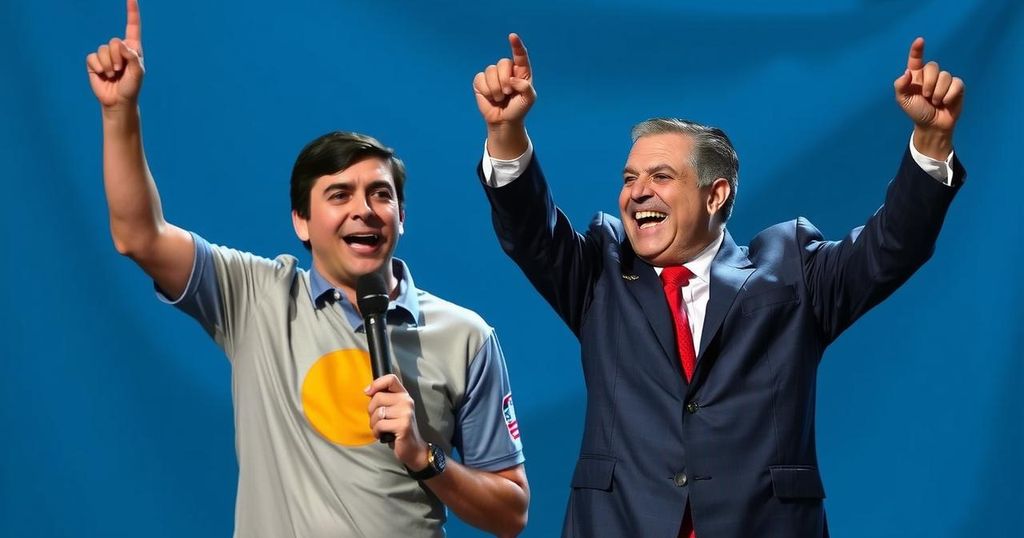Uruguay’s Governing Party Concedes to Left-Wing Challenger Yamandu Orsi

Uruguay’s governing party conceded the presidential run-off to left-wing candidate Yamandu Orsi, ending the conservative administration. Alvaro Delgado acknowledged the defeat amidst high voter turnout, as Orsi’s policies promise a moderate approach focused on economic stability and social reform, signaling a pivotal change in the political landscape.
In a significant political shift, Uruguay’s governing party acknowledged defeat in the presidential run-off held on Sunday, marking the end of the conservative administration that rose to power in 2020. Alvaro Delgado, representing the ruling centre-right coalition, conceded following a closely contested election, stating, “with sadness, but without guilt, we can congratulate the winner,” referring to left-wing rival Yamandu Orsi. Orsi’s victory heralds the return of the Broad Front, which previously governed Uruguay for 15 years, renowned for its progressive reforms.
Delgado’s concession came amidst a high voter turnout of 89.4%, with early counts suggesting Orsi received approximately 49% of the votes compared to Delgado’s 46%. Current President Luis Lacalle Pou promptly congratulated Orsi via social media, signaling a willingness to facilitate a smooth transition. This election reflects a global trend wherein voters, frustrated by post-pandemic economic challenges, have opted for change in leadership.
Despite promising to lead a “new left,” Orsi’s policies are relatively moderate, focusing on economic stability and compatible with some of the outgoing government’s agendas, particularly in tackling poverty and organized crime. His approach seeks to maintain a balance between market incentives and social welfare, aligning with the legacy of the Broad Front. Citizens expressed optimism regarding Orsi’s administration, envisioning improved conditions for future generations.
Overall, Orsi’s presidency indicates a redefining moment in Uruguay’s political landscape, as voters seek leadership addressing their concerns with a moderate touch rather than radical measures. His commitment to progressive ideals paired with sensible economic strategies may define his tenure ahead.
The political landscape in Uruguay has historically oscillated between conservative and left-wing governance. The Broad Front previously held power for 15 years, achieving notable social reforms such as the legalization of abortion and same-sex marriage. The recent electoral results suggest a populist rejection of the incumbent right-leaning government amidst global discontent with current administrations. Yamandu Orsi, a centrist left candidate, is now poised to navigate these expectations as he leads the country forward.
Yamandu Orsi’s election as Uruguay’s president reflects not only a shift in political sentiment but also a broader context of global electoral trends favoring change in response to economic struggles. His moderate platform aims to address pivotal issues while maintaining a balance between social welfare and market-driven policies. The coming term could see a renewed focus on improving living conditions for citizens as they adjust to new leadership dynamics.
Original Source: www.shropshirestar.com







